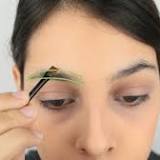Do "wonder" apple cider vinegar gummies actually work?

Weight loss, bloating, cravings, digestion, acne, face puffiness, energy—apple cider vinegar [ACV] gummies are said to help with all manner of things.
Content creators on TikTok, often as part of paid partnerships with supplement brands, have been pushing apple cider vinegar gummies as a health food for the past year.
Indeed, the terms "gummy," "one gummy," "apple cider vinegar gummies" and "gummies" are all trending on the platform.
In one video, with 7 million views and more than 300,000 likes, @jcgotdeals credits the gummies with his 80lb weight loss, from 250lb to 170lb, with the caption: "These gummies really do wonders."
But Catherine Gervacio, nutritionist-dietitian at WOWMD, told Newsweek: "Individual effects [may] vary, and it is not always effective to some people."
She said they do have some benefits for some: "They can promote healthy digestion, slow down sugar absorption, and balance blood sugar levels after meals." Some nutritionists recommend apple cider vinegar before meals to aid digestion by boosting stomach acidity.
Foods that help slow sugar absorption and balance blood sugar levels can reduce the risk of metabolic diseases such as diabetes and obesity, as well as improving energy levels throughout the day.
However, she said: "While small studies suggest ACV might help with blood sugar management or appetite control, these effects are usually modest.
"Larger, more rigorous studies are needed to confirm these benefits. Many of the more impressive health claims haven't been strongly supported by science."
Apple cider vinegar—in non-gummy form—has been used as a health food since ancient times.
Osteopathic doctor Dr. Joseph Mercola, told Newsweek: "Apple cider vinegar's functional benefits stem from its unique composition and fermentation process.
"During fermentation, ACV develops what's known as 'the mother'—a complex matrix of beneficial bacteria, enzymes, and proteins that contribute to its probiotic properties.
"These compounds support digestive health by promoting health gut bacteria and aiding in the breakdown of foods."
Mercola said that ACV's primary active compound, acetic acid—vinegar—has been linked to improved blood sugar regulation, and some studies have suggested that drinking a little vinegar before eating can dampen the blood-sugar effect of a meal.
He added some studies suggest ACV may help support weight management, perhaps "through its effect on satiety and metabolic function."

However, apple cider vinegar gummies may not have the same benefits as liquid apple cider vinegar.
Gervacio said: "I'd say [the gummies] don't deliver the same punch as liquid ACV. Gummies commonly contain much less acetic acid than liquid vinegar."
Nutritional therapist Esther Baylis, of Wellswood Health, said: "For the average person, this type of supplement is not likely to be of much benefit. The amount of ACV in gummies varies and is often well below therapeutically researched levels."
She said that, in studies where ACV was found to have promising results for weight management, and participants were given a tablespoon of ACV per day, whereas some gummy brands contain less than half a drop of ACV per gummy.
Mercola added: "Commercial gummies often contain ACV powder, added sweeteners, artificial additives, and preservatives that dilute the benefits.
"While some brands add supplemental vitamins, like B9 and B12 to enhance their appeal, these additions don't necessarily replicate the complex beneficial properties of liquid ACV."
Mercola recommended making ACV gummies at home, with grass-fed gelatin and natural sweeteners such as honey or maple syrup, to "maintain the integrity of the beneficial compounds."
Gervacio said there was no harm in giving the gummies a try. But she warned: "As with any supplement, moderation is key, and if you have digestive sensitivities or are on medication, it's worth checking with a healthcare provider before making it a regular part of your routine."
But for Baylis, her advice was to incorporate ACV into the diet "without having to take another supplement." Combine a tablespoon of the vinegar with two tablespoons of extra-virgin olive oil to make a simple salad dressing, she suggested.
Do you have a tip on a food story that Newsweek should be covering? Is there a nutrition concern that's worrying you? Let us know via science@newsweek.com. We can ask experts for advice, and your story could be featured in Newsweek.


 New Zealand
New Zealand Argentina
Argentina  Australia
Australia  Austria
Austria  Brazil
Brazil  Canada
Canada  Germany
Germany  Ireland
Ireland  Italy
Italy  Malaysia
Malaysia  Mexico
Mexico  Poland
Poland  South Africa
South Africa  United Kingdom
United Kingdom  United States
United States 












